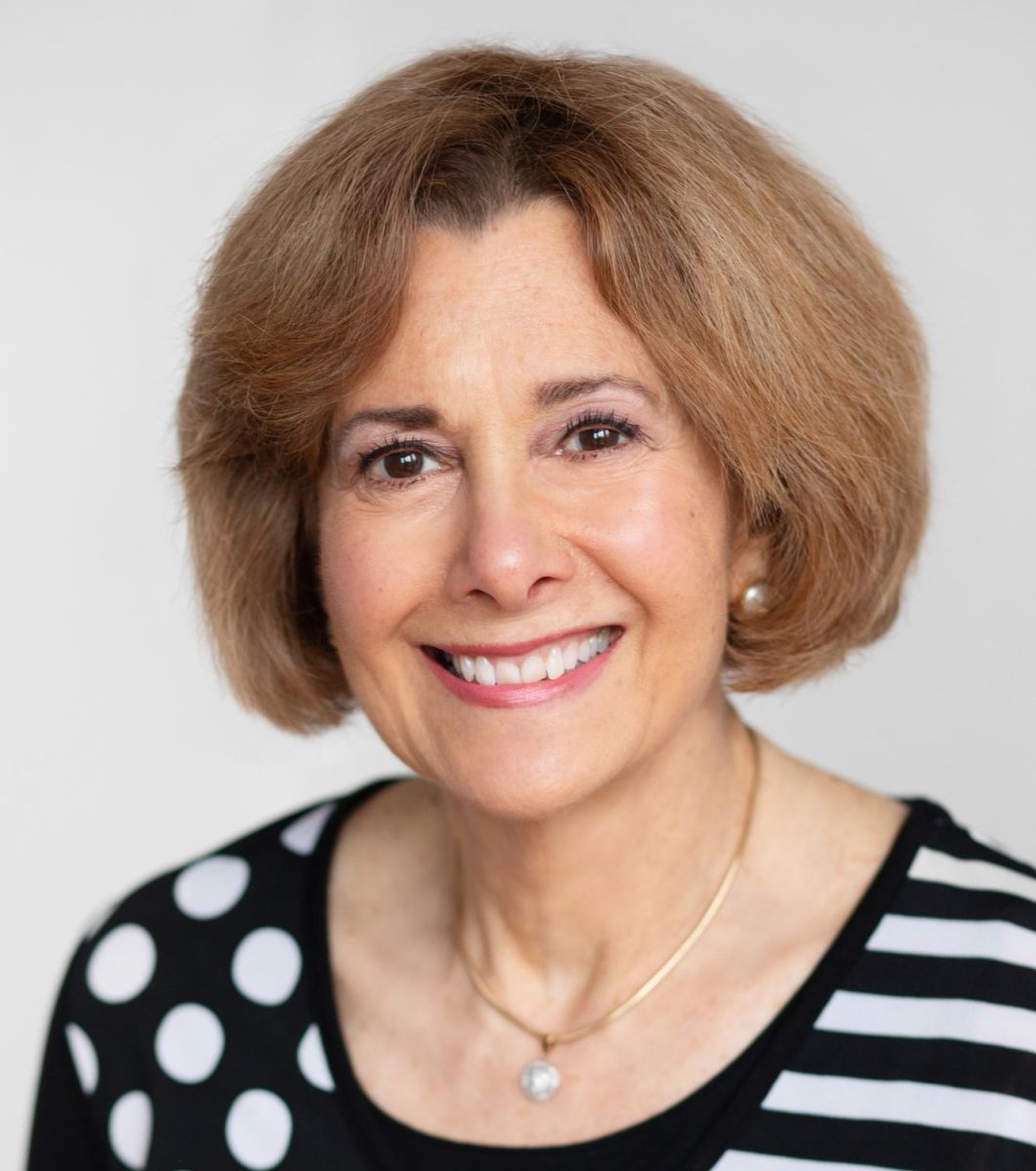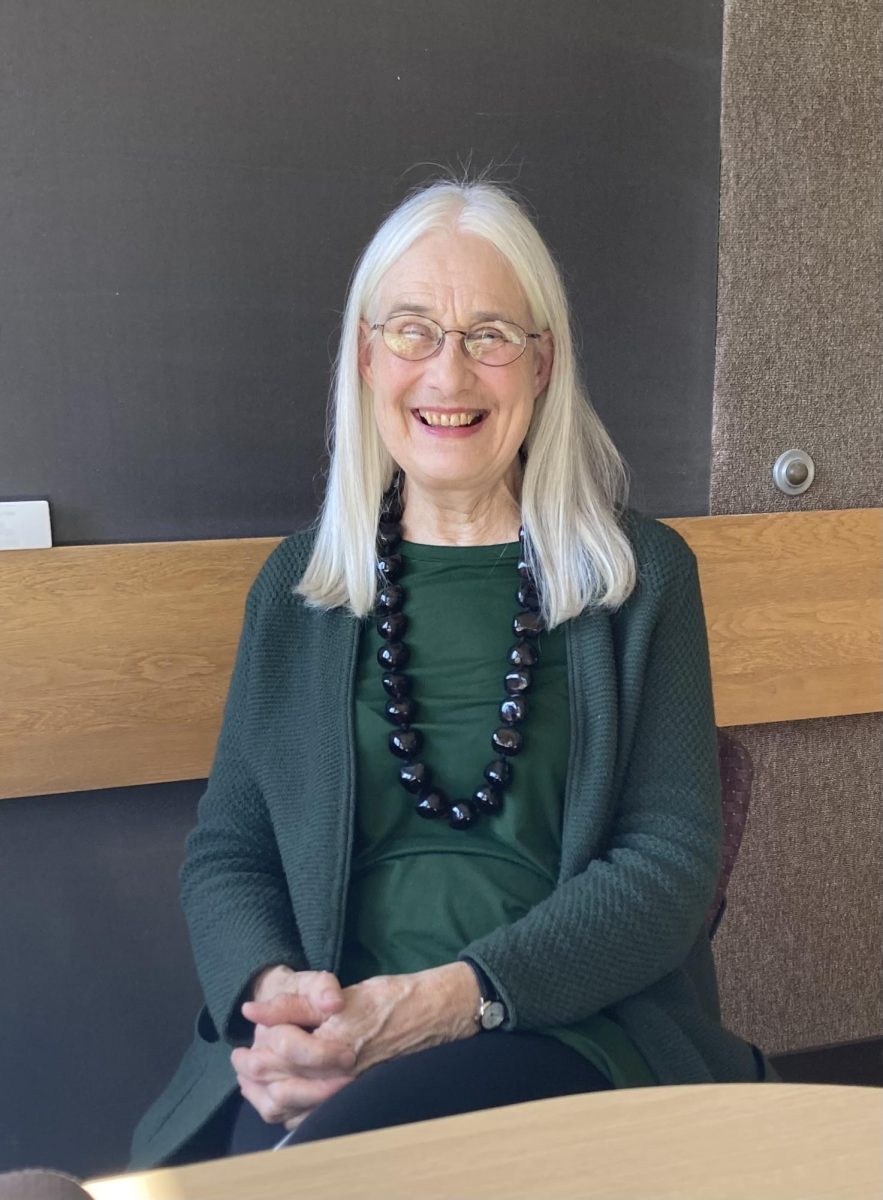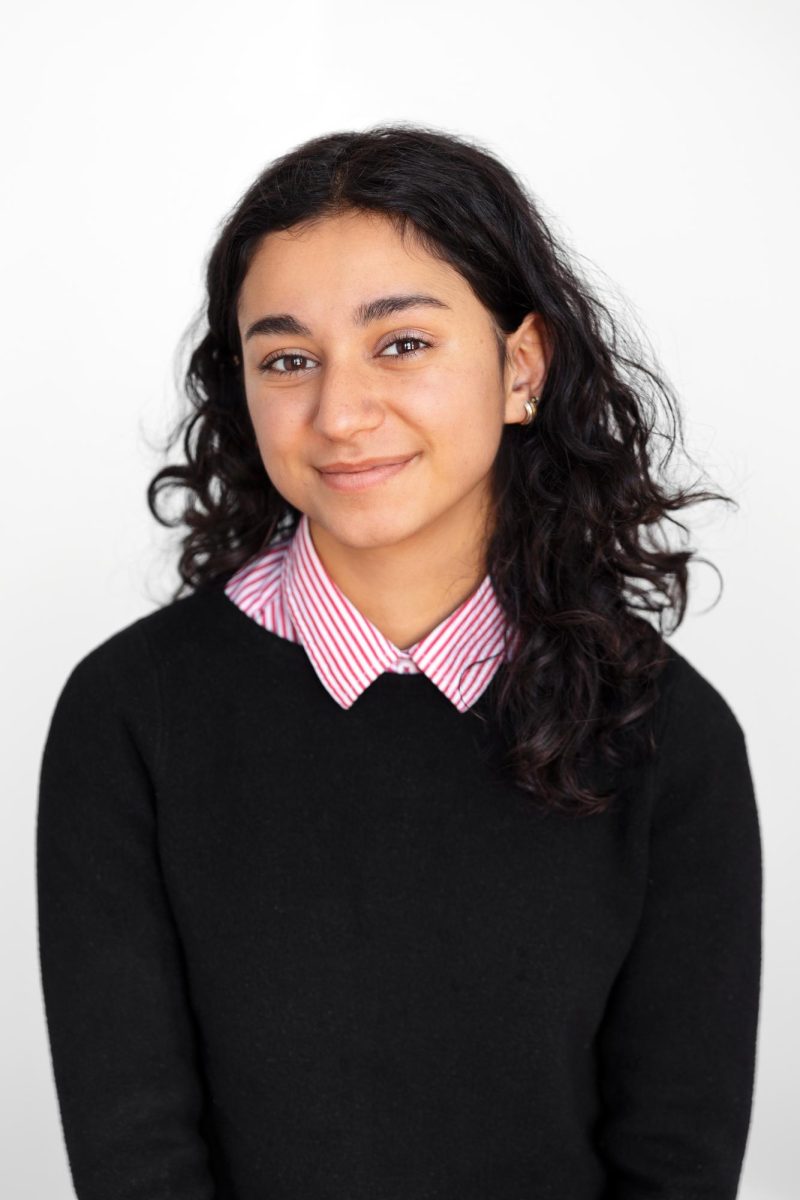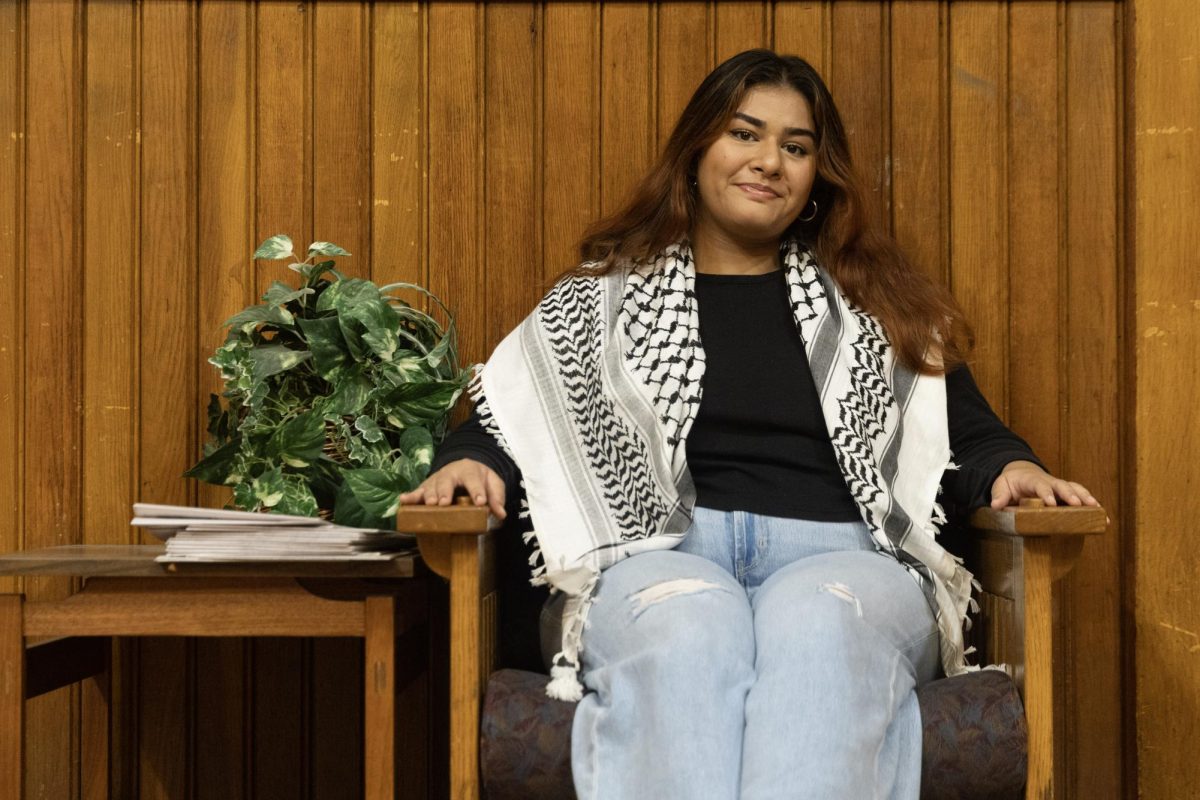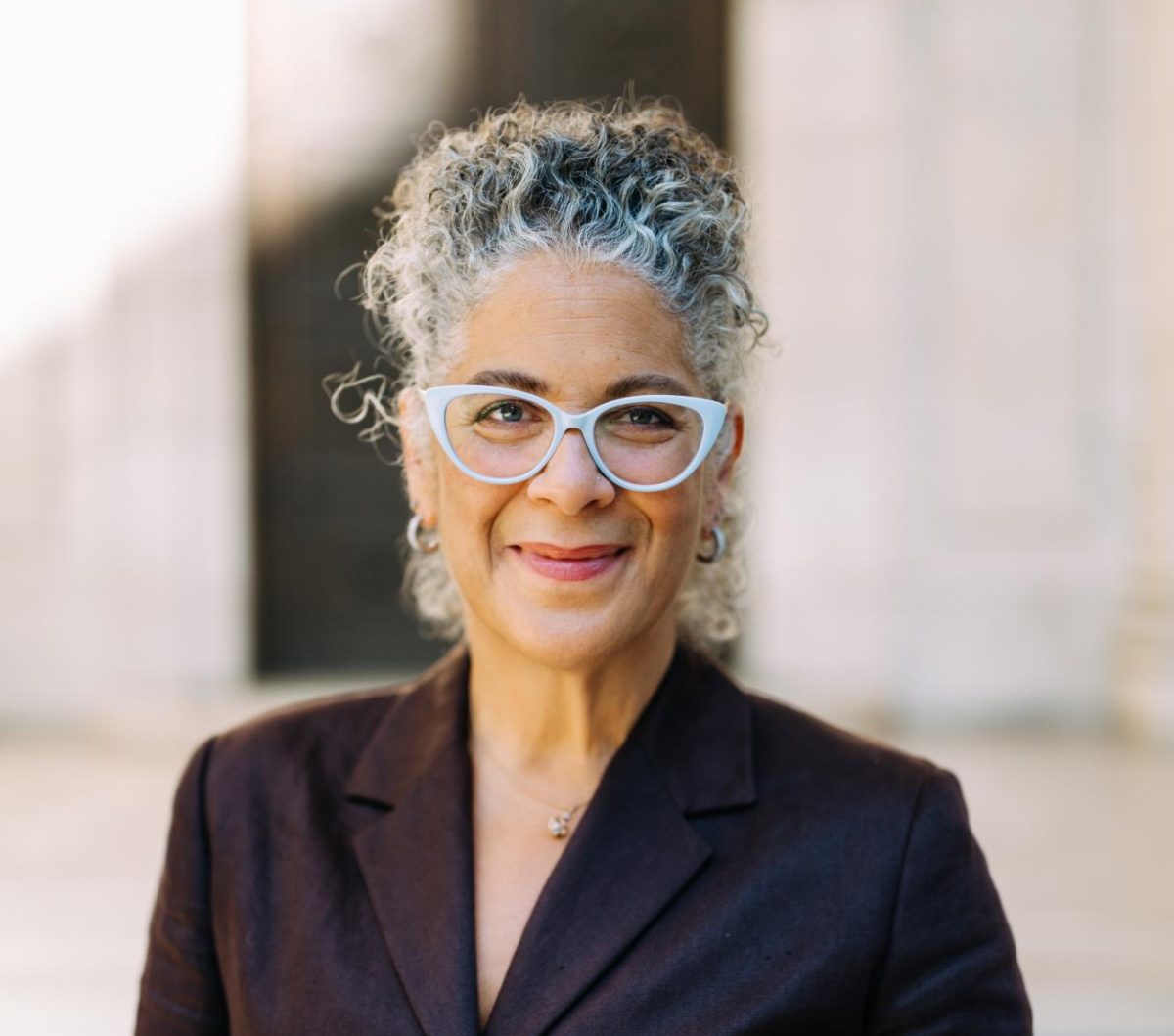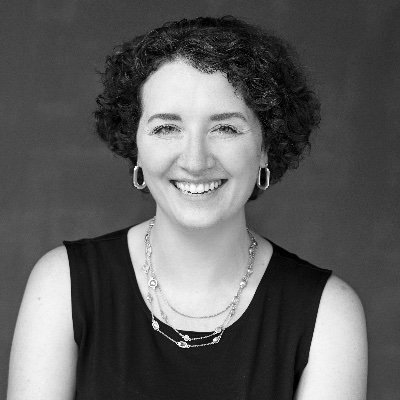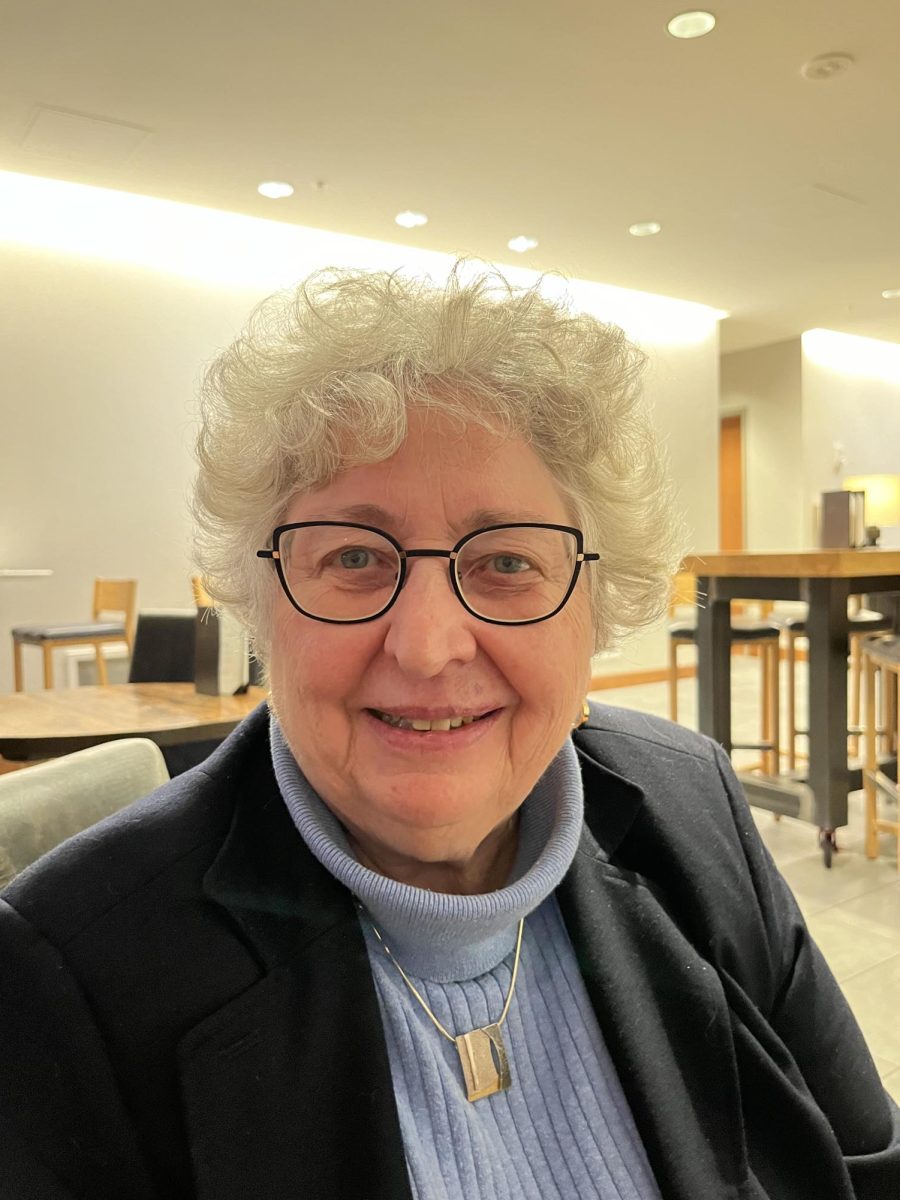Jan Weintraub Cobb, OC ’71, is currently the President of the Alumni Leadership Council. Established in 2014, the ALC oversees the Oberlin Alumni Association and helps with any events or actions of the association. Cobb, as president, works on the Council with current students and alumni during the year. The Alumni Leadership Council met this past weekend.
This interview has been edited for length and clarity.
What is the purpose of the Alumni Leadership Council?
The ALC, the Alumni Leadership Council, is different from the Alumni Association. The Alumni Association counts on the alumni for donations. We count on the alumni to provide jobs for internships. We count on the alumni to spread the good word about Oberlin so that we can recruit more students. And then the Alumni Leadership Council is sort of a microcosm of that. We help to facilitate how the alumni can work with the administration and further the excellence of the College. So the Alumni Leadership Council has a person who’s a representative as a liaison with the admissions office, another one with the annual fund, one for all of the class presidents, and one for regional programming because alumni do a lot of programs in different cities. We also have a careers committee. We decided to make our career committee focus on, not exclusively, but focus on alum-to-alum jobs. There’s people who need a job, there are people who want to make a job change mid-career. Again, the purpose is to keep alumni feeling engaged and connected so that we can count on them for jobs, students, and money. And it’s just a good feeling of being a student for four years and then you’re an Obie alum for life. We just want to make that the best experience we can for the alumni.
How did you join the Alumni Leadership Council?
So, when I graduated, I was my class’ first alumni president. And back in those days, we used to write a letter to everybody in our class. I was the class agent, which was writing fundraising letters, and then there was a class president’s letter that was more like, “Here’s what’s going on at the College.” And we had to write a note on the class agent letters. We were supposed to write a note on each one of them. So that’s 900 or 800 people. I had to write all these notes and I could remember sitting on the floor of my living room writing as I watched TV. From early on, I was involved. Did I ever think I would be in this position? No, I didn’t. I actually at an earlier point burned out, which I never really have done with any other activities, but I was doing so much that I just said, “Hey, I can’t do this anymore.” So I stayed away for a number of years and then I came back. It pulled me back in.
What is the process of handling donations? Is there a way to disperse it?
Well, generally with any non-profit, you give money for the mission of whatever the organization is. I have a number of organizations I’ve done work with. And you make a donation to it. And sometimes they could be for specific programs. Many of the classes — I don’t know if it’s all of them — but many of the Oberlin classes have scholarship funds: we have a class of 1971 scholarship fund. So a lot of people give to that because then they know that their money’s going directly to help students rather than directly to help the administration. This is also a way to target your funds. There are a ton of funds that the College has. And you could contact somebody in the annual fund office and they could give you a list if you wanted to see what they were. But there’s probably an LGBTQ+ fund, a fund for supporting different houses, buildings, or communities. So if you wanted to just not give it generally to the College, but to any organization, they can spend the money how they want to.
What is your overall goal as the president of the Alumni Leadership Council?
So my term started in October and I have, at this point, 19 months left. So there’s a lot to do in 19 months. But my goals are for more alumni to be engaged and connected. And I see a difference in those two things. Because you can be connected and you can be engaged. If you are writing a letter to your classmate to give, reading the newsletters, asking for money or working for Oberlin to plan a regional program, or helping somebody with their career, those are engaged alumni. And my hope is to figure out how to reach more of those people so more alumni do activities and stay connected.
And the alumni office has a pretty detailed strategic plan. Their biggest area is to have more regional programming, as that’s the main way to get in touch with as many people as possible. So they have a plan to go out to X number of cities and plan programs. And sometimes we bring in somebody from the College, sometimes we just have a gathering. But those are ways that we get to as many alumni as possible. A lot of that didn’t operate during the pandemic. So it’s almost like we’re starting over again to get people revved up to do these kinds of activities. What excites me is that the people who are on the Alumni Leadership Council are just wonderful. I mean, there’s not an Obie who isn’t wonderful, but these are really wonderful people; they’re all passionate about Oberlin. They are dedicated to getting things done and it’s exciting to be with the people that are on the Alumni Leadership Council.
What’s your background that led you to working with the Alumni Leadership Council?
So, I majored in psychology. I was going to teach; I wanted to be a school counselor, but then I taught for a while and I didn’t like it at all. And at the time, in the early ’70s, I went into business and you had to whisper that to Oberlin people because it just didn’t get done. You never told somebody that you were going into business. But I did; I got into business and got my MBA at the University of Chicago, and then we moved to Cincinnati and I started working for a bank. But then I got into commercial real estate. And so first I was a lending officer. And then I was a property manager. So I managed office buildings, industrial buildings, and retail centers. I ran a department for the company that I worked for. And I did that for my career. I just retired from that four years ago. Also, along the way, I did a lot of non-profit stuff. I was the first woman president of my synagogue. And then I was on the board of a number of agencies and chaired a number of agencies. And Oberlin is my current one.


